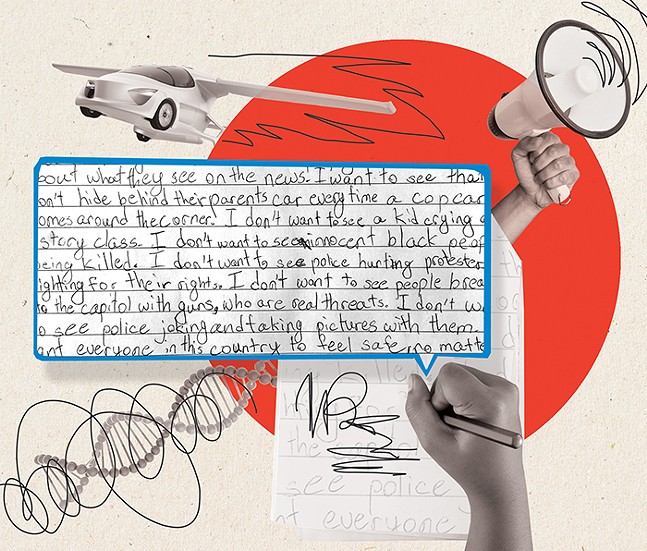How Long ’Til Black Futures Month? is the title of a brilliant collection of short stories by literary genius N.K. Jemisin. Like her longer form works, it contains speculative fiction challenging notions of time, space, and place.
Her work also challenges the notion of past, present, and future. What is past? What is present? What is the future? Black History Month works this same way. In fact, all of history does. As the incandescently astute James Baldwin said: “History is not the past. It is the present. We carry our history with us. We are our history ...”
We are simmering in our history through our DNA, we are living our history in our daily lives, and creating history as we move into the future. Which is why the question I posed to some young people now seems a bit misplaced.
Inspired by the title of Jemisin’s book, I asked them, “How would you celebrate a Black Futures Month?” There was a long pause in the electronic responses as I waited for emails to come back, expecting to hear about space travel, new nations, or flying cars.
Actually, Miles (age 9), who believes Black History or Black Future should be recognized every month, did mention flying cars, repeatedly, according to his mother Dorie Taylor’s email. In concert with his brother’s response, Nevins (age 12) said he would want to celebrate Black makers and their inventions. I started to imagine that this duo could become the very inventors we would all be celebrating, or, perhaps, I can look forward to a video of them in their flying vehicles.
How I came to understand that my question now, especially now, was missing a step came from my nephew Thaddeus (age 11). The question I should have asked is, “How can we celebrate or think about Black Present Month, a Black Now Month?” For then I would get to the core of the issue which Thaddeus does in his response:
“I would like to see kids not having to worry about police brutality. I wouldn’t want people to be scared about what they see on the news. I want to see that kids don't hide behind their parents’ car every time a cop car comes around the corner. I don’t want to see a kid crying after history class. I don’t want to see innocent Black people being killed. I don’t want to see police hurting protesters fighting for their rights. I don’t want to see people breaking into the Capitol with guns, who are real threats. I don’t want to see police joking and taking pictures with them. I want everyone in this country to feel safe, no matter who they see, where they are, or what they are doing.”
After seeing this email, with a photo attachment of my nephew’s young, but clear and defiant hand lettering, I showed it to a friend who said, “These are not the thoughts a child should ever have.”
As a human being, an adult, a Black person, a Black woman, and this child’s aunt, I have to admit my heartbreak at reading this, but also my pride for his empathy and understating the value of everyone. He gets the words “... and justice for all” even though we as a country clearly do not.
To understand and appreciate Black History, we have to know the actual history. But how can we, with layer after layer of milky, whitewashed, myth-making paint covering the truth? A truth that only a few seem to care enough to strip down to make the baseboards and foundations visible. Our job includes making Black Present, Black Now justice filled — not better, not “better than,” but true justice. This creates a path to a Black Future that is not just equitable, but love-filled; healing the Black History and Black Present, while acknowledging that both contain the many joy and love of Black people several millennia old.
Our history, our DNA as Black people, contains more joy and love then pain and trauma; if it did not, we would not be here today. We have to use the complete inheritance of our ancestors to make a way in this present as we create new dreams, new goals, new plans for our Black Future.
Maybe then, we can fulfill the hopes of Thaddeus’ simple humanistic wish, that many of us in Pittsburgh — Black, Asian, Queer, Elderly, Disabled, Indigenous, Jewish, Muslim, and more — do not feel at this moment in this region:
“I want everyone in this country to feel safe, no matter who they see, where they are ...”


